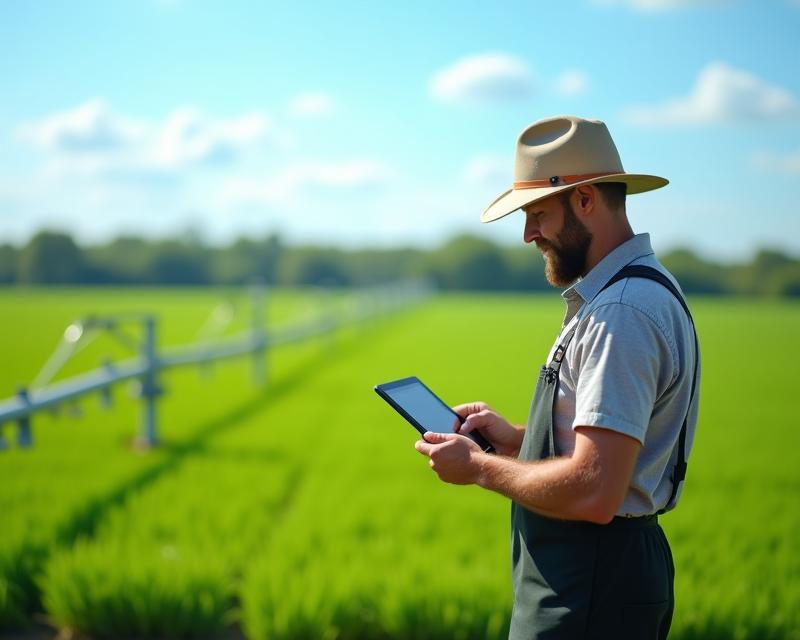Smart Irrigation: Water Savings for Organic Farms
Publish in Sustainable Farming el 22/07/2025 16:26
Smart Irrigation: Water Savings for Organic Farms
Water is a precious resource, especially for organic farmers! Efficient water management isn't just good for the environment; it's crucial for healthy crops and a thriving farm. Traditional irrigation methods can waste a surprising amount of water. But, thankfully, technology is offering innovative solutions. Smart irrigation systems are revolutionizing how we water, especially in organic farming, and it’s easier than you might think to implement.

What are Smart Irrigation Systems?
So, what exactly *is* a smart irrigation system? Essentially, it's an automated system that uses sensors and data to deliver water precisely when and where your plants need it. Unlike fixed-schedule sprinklers, these systems consider factors like soil moisture, weather forecasts, and even the specific water needs of different plant types. They often connect to a central controller, which can be managed through a smartphone app. This allows for remote monitoring and adjustments, saving you time and effort.
How Does it Benefit Organic Farms?
The benefits for organic farms are significant. First and foremost, water conservation is a huge win. By delivering only the necessary amount of water, you drastically reduce waste. This is particularly important in regions facing water scarcity. Secondly, smart irrigation promotes healthier crops. Overwatering can lead to root rot and nutrient deficiencies, while underwatering stresses plants and reduces yields. Precise watering ensures optimal conditions for growth, leading to stronger, more resilient plants. This can also reduce the need for certain types of fertilizers, aligning with organic farming principles.
Precision Watering for Better Yields
The key to smart irrigation is precision. Soil moisture sensors placed throughout your fields provide real-time data on how wet the soil is. This information is fed into the system, which then adjusts the watering schedule accordingly. Some systems even use weather data to account for rainfall and evaporation. This targeted approach means your plants get exactly what they need, when they need it. Studies have shown that smart irrigation can increase crop yields by 10-20% while reducing water usage by 30-50%! It’s a win-win for your farm and the environment.
Getting Started
Implementing a smart irrigation system doesn't have to break the bank. There are various options available, from simple, affordable kits to more sophisticated, professionally installed systems. Start by assessing your farm's water needs and considering the types of crops you grow. Consult with local agricultural extension agents or irrigation specialists to determine the best system for your specific situation. Investing in smart irrigation is an investment in the future of your farm – a future of sustainability, efficiency, and healthy, thriving crops.





